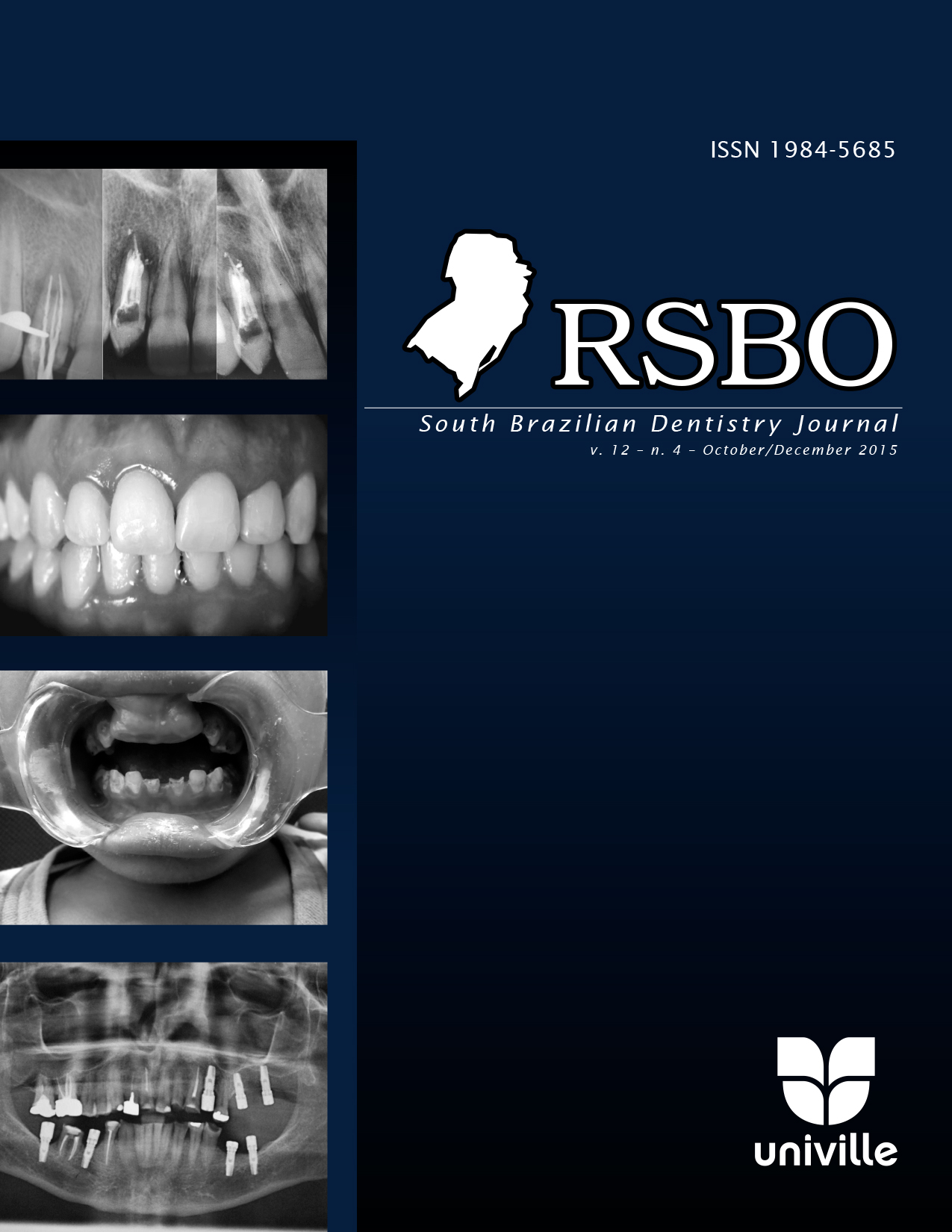Prevalence of caries disease in Pro-Health practices
DOI:
https://doi.org/10.21726/rsbo.v12i4.779Palavras-chave:
caries; children; dmft.Resumo
This research aimed to evaluate the prevalence of caries and
cariogenic habits in children living in Jardim Paraíso neighborhood,
city of Joinville–SC, where Pro-Health practices have been executed
since 2009. Material and methods: Data collection was performed
according to the WHO criteria for epidemiological survey. Food and
oral hygiene habits of children and socioeconomic characteristics of
their caregivers were collected through a questionnaire with closed
questions. The sample consisted of 137 children, 69 (50.4%) males
and 68 (49.6%) were female. Results: There was statistical significance
in relation to intake of cariogenic foods when compared to dmft
index, demonstrating positive correlation between the frequency of
consumption and caries manifestation. The mean dmft index was
1.61, with a predominance of decayed teeth (92.76%), demonstrating
the need for more financial support in public policies for oral
health promotion and education in the neighborhood, aiming at
the paradigm shifting from curative dental practice to the current
approach focused on prevention.

